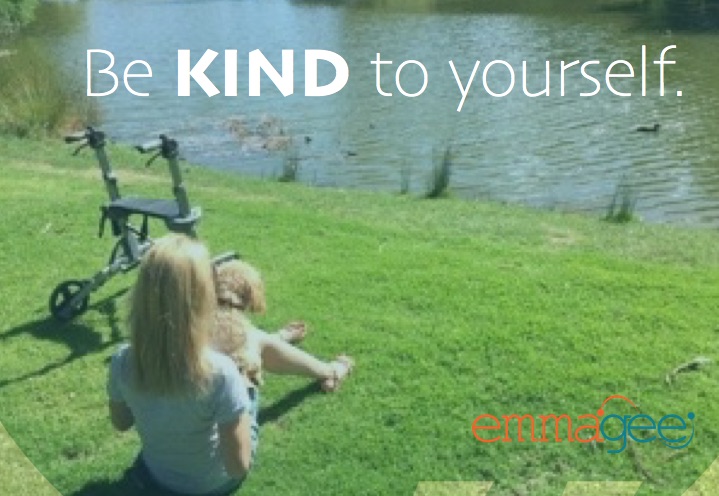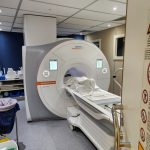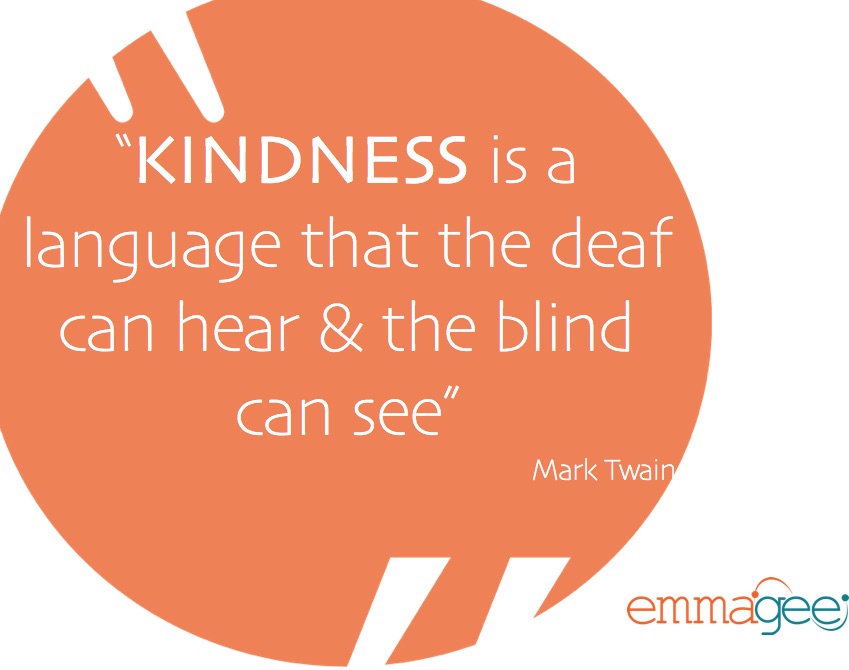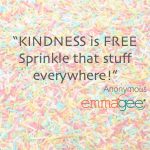 Since my stroke, now 19 years ago, there have been multiple examples that I could definitely relay to highlight the HUGE impact kindness has had on my care. Quite often when I’m feeling so engulfed by the really challenging times, and feeling beyond vulnerable it’s actually human kindness that has got me through. However, one of my recent experiences stands out whilst having yet another diagnostic procedure, an MRI. Although I’ve had 1000’s of scans, jabs and procedures, I still feel absolutely petrified each time.
Since my stroke, now 19 years ago, there have been multiple examples that I could definitely relay to highlight the HUGE impact kindness has had on my care. Quite often when I’m feeling so engulfed by the really challenging times, and feeling beyond vulnerable it’s actually human kindness that has got me through. However, one of my recent experiences stands out whilst having yet another diagnostic procedure, an MRI. Although I’ve had 1000’s of scans, jabs and procedures, I still feel absolutely petrified each time.
A few months ago I was diagnosed with meningitis that required another MRI. I was terrified. To add to this fear, to treat my facial palsy they have put a gold weight in my eyelid to help my lid close so I was especially anxious as a knew that gold was a conductor and I couldn’t remove it!
So a week into my admission, I’m lying in my pjs, grappling with all the challenges of hospital and dreading my clexane stingy jab and pondering what hospital early dinner I’ll get. But then unexpectedly, a porter with a wheelchair enters my room and wheels me to the hospital basement for my impromptu MRI.
Although I was keen to know why I had meningitis, I remember feeling totally sleep deprived, bombarded with medication and so vulnerable. I was feeling so done with being poked and prodded and extra anxious, I really just wanting my family and some comfort.
 But on this occasion, instead of the cold unfamiliarity I expected and almost conjured up in my mind, the Radiologist greeted me with a warm blanket and introduced himself. He went on to explain in a calm tone the entire diagnostic process.
But on this occasion, instead of the cold unfamiliarity I expected and almost conjured up in my mind, the Radiologist greeted me with a warm blanket and introduced himself. He went on to explain in a calm tone the entire diagnostic process.
There were so many things in his manner that automatically calmed me.
He had obviously read my history saying things like –
“I see in your notes that you’ve had a few of these!” He said pointing at the enormous white MRI machine behind us.
“You have a gold weight in your right eyelid, don’t you?” He asked, circling his own gold wedding ring on his finger. Then he said in a gentle tone –
“Not too comforting I bet, but try not to worry, I’m wearing this gold ring and my wife would kill me if I removed it. So, I never take it off and it’s fine” He popped it back on his finger, securing it and wheeled me into the room to help the porter transfer me onto the MRI table.
He put a pillow under my knees and asked me multiple times throughout the 60 minute procedure if I was ok.
It was incredible how his actions and reassuring words calmed me down so much.
Similarly, there are numerous times in my recovery where another’s kind actions and words have had such a profound effect on me. The neurosurgeon who shared the devastating news of my Arterior venous malformation or AVM that led to my stroke sat down at my bedside and explained everything clearly to me.
I write about this in my book –
“… He put his hand on my right shoulder reassuringly and smiled compassionately saying, “We’ll chat about this with your parents, Emma. Don’t worry. You’re in good hands here…”.
Again, his calm and kind manner made such a difference.
There are a few things that I think are so powerful, yet simple, that make space for kindness. I think it is vital that we prioritise kindness it in each encounter if we want to build a good rapport, whether it’s with a colleague, a patient or a family member.
I think it’s important to note that we all have the superpower to be kind and a choice whether to use it or not. I think by prioritising an act of kindness hugely impact a person’s experience of that encounter.
By ensuring that you have time to spend with each person and if need be, make another appointment, it create a kindness driven space for your encounter. Even simply acknowledging that you didn’t have enough time to spend with them in that moment – It is only then that I think a person in their vulnerable state won’t take your actions or behaviour personally and you end up damaging the rapport that you have built.
I recently had a therapist carry out an assessment that she wanted to complete quickly. She marched into my room, didn’t sit down and at times in our brief encounter, seemed bored. I couldn’t hear her properly and she seemed only to get frustrated when I struggled to quickly articulate my responses. I just felt gutted from that encounter and totally disempowered.
In comparison, later in my admission, a nurse came into the room, asked if I had time to chat and later asked if I wanted the blinds drawn down to stop the glare. She also queried which side to would be best to sit on for my hearing. Already, her kind acts made me feel so much more valued.
In choosing to make that space too, it is also important to factor into others in the person’s support team. It has been so important in my experience when those in my support team are also receiving kindness. Whether it’s bringing a hot cup of tea to my mum when I was in ICU or getting a vase or a chair for my visitor. It’s incredible when kind acts that I can’t do are carried out for me. I feel less of a burden. Acts where they feel nurtured too and it takes a lot of worry off me as the main recipient of their care.
“KINDNESS is a language that the deaf can hear & the blind can see” is a quote by Mark Twain that also highlights how powerful kindness can be communicated in our interactions with others. You may have a little time to fit in an additional task like making a cup of tea. Also, the way you engage in the time you do have really matters because it’s not just your verbal skills, but all your attending skills like your body language can hugely shape the person’s experience.
Early in my recovery, a Doctor who I had a lot of respect for overlooked my eye contact when I stared at him to get his attention. At that point in my recovery I couldn’t yell or point, so eye contact was all I had to get someone’s attention. He didn’t have time to attend to me. So, he ignored me. If he’d said something acknowledging like “Em I’ll see you tomorrow, I’m sorry I’m busy right now”, that would’ve been ok. Instead, I lost so much respect for him and felt so devalued by his actions and manner.
Remembering that it can be so simple – Kindness can simply be embedded into your everyday conversations by the way you speak, give eye contact or the way you stand.
We can sometimes have to interact with a difficult person, whether a colleague or a patient, and feel so berated by their manner. Making space for kindness is definitely NOT prioritised at these times. However, I think that in their vulnerable state they are likely to need these kind acts more than ever. Unfortunately, it’s you that perhaps cops it! I do think though it’s important for all of our wellbeing to remember that the challenges we endure are so much easier to withstand if kindness is factored in. In fact, if I receive kindness or a kind act, I am more likely to reciprocate that.
So, in making space for kindness, let’s choose to incorporate it into our everyday encounters. Perhaps, begin with just becoming aware of your actions and behaviours – make space in your day to simply reflect on your interactions.
It’s said that – “Kindness is FREE so sprinkle it everywhere!” So do that. Make it a habit by asking yourself before each interaction – ‘How can I sprinkle kindness?”How can you make space for kindness in your day?
Remember – “Kindness is FREE. Spring that stuff everywhere!”
